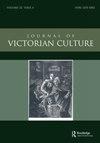Political Censorship on the Late-Victorian Stage: Rereading Oscar Wilde’s Vera; or, the Nihilist[s]
IF 0.2
3区 历史学
Q2 HISTORY
引用次数: 0
Abstract
The publication in 2021 of the Oxford English Texts version of Oscar Wilde’s Russian melodrama Vera; or, the Nihilist (1883), based, as it is, on new archival research by its editor Josephine Guy, deepens the mystery surrounding the alleged censorship of Oscar Wilde’s first play. While Wilde himself promoted the idea that the expression of democratic ideals in his Nihilist play had prevented its performance in England, a genetic analysis of an early manuscript version of the play (1881) made available in the OET Vera and Guy’s reconstructed play-text of the first performance, problematizes the putative censorship of the play on political grounds. In conjunction with new readings of Wilde’s Poems (1881) and his letters from the period, the genetic analysis that follows crystallizes attendant issues concerning the extent of Wilde’s radicalism at the outset of his career and the nature of his commitment to Irish republicanism per se. Where the Chief Examiner of Plays (E. F. S. Pigott) promoted the idea that there was no political censorship of the theatre at the end of the Victorian period, the examples of the alleged suppression of Wilde’s melodrama and the experiences of his mentor, the Irish playwright Dion Boucicault, at the hands of the British press evince the multiple forms of political censorship and self-censorship that came to shape (and impede) the development of the late-Victorian stage.维多利亚晚期的政治审查制度——重读王尔德的《薇拉》或者,虚无主义者[s]
2021年,奥斯卡·王尔德的俄罗斯情节剧《维拉》的牛津英语文本版将出版;《虚无主义者》(Nihilist, 1883)是根据编辑约瑟芬·盖伊(Josephine Guy)的最新档案研究写成的,它加深了围绕奥斯卡·王尔德(Oscar Wilde)第一部戏剧所谓的审查制度的谜团。虽然王尔德本人认为,他的虚无主义戏剧中表达的民主理想阻碍了它在英国的演出,但对该戏剧的早期手稿版本(1881年)的基因分析,在OET Vera和Guy重建的第一次演出的剧本文本中提供,对该戏剧的政治审查提出了问题。结合对王尔德诗歌(1881年)的新阅读和他在这一时期的信件,接下来的遗传分析明确了王尔德在职业生涯开始时激进主义的程度以及他对爱尔兰共和主义本身的承诺的性质。戏剧首席审查员(E. F. S. Pigott)提出,在维多利亚时代末期,剧院没有政治审查,而王尔德情节剧被压制的例子,以及他的导师、爱尔兰剧作家迪翁·布西柯(Dion Boucicault)在英国媒体手中的经历,表明了多种形式的政治审查和自我审查,这些审查和自我审查形成(并阻碍)了维多利亚晚期舞台的发展。
本文章由计算机程序翻译,如有差异,请以英文原文为准。
求助全文
约1分钟内获得全文
求助全文

 求助内容:
求助内容: 应助结果提醒方式:
应助结果提醒方式:


